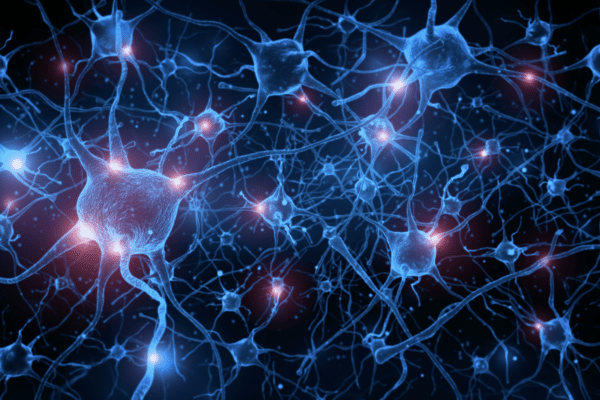How Long Does It Take to Absorb Alcohol?

Alcohol is fast-acting. Your body quickly absorbs it and can feel its effects within as little as 10 minutes. It usually hits its peak after 30-90 minutes.
However, this isn’t the whole story. Alcohol affects everyone differently.
This is because a variety of factors affect how long it takes for alcohol to impact an individual. In this post, we’ll help you better understand tolerance levels.
Note: This post from Master Center for Addiction Medicine only provides general information and in no way condones drinking alcohol. It is not a substitute for professional medical advice. Consult your doctor for the best guidance relevant to your situation.
How Long Does It Take for Alcohol to Kick In?
Alcohol absorbs into the system in as little as ten minutes, but its peak effects come between 30-90 minutes after ingestion. However, factors like age, weight, and sex all play a part in modifying alcohol’s effects.
How Long Does It Take for Rum to Kick In?
Alcohol absorbs rapidly into the bloodstream. You may feel effects as quickly as ten minutes, but rum’s peak effects generally come between 30-90 minutes after ingestion. If you’re drinking on an empty stomach, expect even quicker results.
How Long Does It Take for Beer to Kick In?
A standard 12-ounce beer can absorb into the bloodstream and affect the brain in as little as ten minutes. Beer’s carbonation also increases its rate of absorption.
How Long Does It Take for Wine to Kick In?
Wine’s effects are noticeable as soon as ten minutes after consumption. Depending on the amount of consumption, you may feel its influence between one and two hours after you drink.
Does It Matter If I Drink with An Empty Stomach?
We’ve all heard that drinking alcohol on an empty stomach can increase the absorption rate. Is this true?
In short, yes. This has to do with how our bodies process alcohol. Let’s take a closer look at what happens when you drink:
How Your Body Processes Alcohol
As soon as it passes your lips, alcohol immediately enters your bloodstream. The blood vessels in your mouth absorb a very small concentration.
When the drink reaches your stomach, an additional 20% of alcohol is absorbed into your bloodstream. This happens because the substance passes through the tissue lining.
The remaining alcohol in your stomach makes its way to your small intestine. In the small intestine, the rest of the substance (around 80%) passes into your bloodstream. It will eventually arrive at the liver, where the organ will metabolize it.
What Happens If There’s Too Much Alcohol for the Liver to Metabolize?
In the liver, AHD enzymes oxidize the alcohol (ethanol) molecules. This converts the ethanol molecules into acetaldehyde molecules, which then metabolize into acetic acid. From there, acetic acid is broken down into carbon dioxide and water.
However, you should realize that the liver can only metabolize so much alcohol at a time. Metabolism rates vary depending on a variety of factors (which we’ll discuss later on). Typically, the liver can metabolize one standard drink per hour.
If you consume excess alcohol, it remains in your bloodstream until the liver can process it. It will travel throughout your body and affect organs, including:
- The brain. Alcohol can reach the brain within as little as 5 minutes of drinking. You will feel the effects of impaired judgment, coordination, etc.
- The heart. When alcohol reaches your heart, you’ll experience effects like increased blood pressure.
- The kidneys. When you drink, you put stress on your kidneys. This is because these organs are responsible for filtering out toxins. Your kidneys also must overcome dehydration that often accompanies drinking.
What Happens When Food Is in Your Stomach?
The faster the absorption rate, the quicker alcohol will affect your body.
People who eat while they drink or eat before they drink have slower absorption rates.
Food acts much like a sponge. It can absorb some of the alcohol in your stomach. This prevents it from immediately passing to your small intestine. When you drink without eating, nothing stops the alcohol from making its way straight to your bloodstream, brain, and other organs.
Factors That Affect the Time It Takes for Alcohol to Kick In
Drinking on an empty stomach can play a significant role. However, other factors also affect the time it takes for alcohol to kick in.
Here are some of the most important ones you should be aware of:
How Much You Drink (& How Fast You Drink It)
Of course, how much you drink will affect the time it takes for alcohol to kick in.
As we mentioned above, your liver can metabolize about one standard drink per hour. In the U.S., one standard drink has 14 grams of pure alcohol. This translates to:
- 12 ounces of beer (contains about 5% alcohol)
- 5 ounces of wine (contains about 12% alcohol)
- 1.5 ounces of liquor (contains about 40% alcohol)
So, 1.5 ounces of liquor will kick in faster than 1.5 ounces of beer. This is because the liquor has a higher concentration of alcohol.
Also, keep in mind that the rate at which someone drinks plays a role. One can of beer and one shot of liquor have the same amount of alcohol. But, if you sip on the beer over the course of an hour, it will produce weaker effects than if you were to take the liquor all at once.
Your Sex
Typically, women absorb alcohol more quickly than men. This means that it takes fewer drinks for women to become intoxicated.
There are several explanations for this, including:
- Women don’t produce many ADH enzymes (the enzymes responsible for the metabolism of ethanol).
- Women have higher concentrations of body fat.
- Women have lower levels of body water.
Your Size and Weight
Women also experience intoxication faster because they tend to be smaller in size and weight. Men tend to have larger skeletal sizes and bone mass. This greater weight means they don’t absorb alcohol as quickly.
However, size and weight play a role regardless of gender. If a 150-pound man and a 200-pound man drink the same amount, the former will likely become intoxicated quicker.
Your Genetics
Your genetics can play a role in how tolerant you are to alcohol. Some experts even suggest that ethnicity plays a role. Asians, for instance, tend to have a genetic mutation in their ADH enzymes.
Your Age
As we age, our bodies have a harder time metabolizing alcohol. Older people may find that they become intoxicated more quickly than they used to.
Whether or Not You’re Drinking Carbonated Beverages
When you drink carbonated beverages, you might feel bloated. This is because they increase pressure in the stomach. The pressure speeds up the absorption by pushing alcohol through your stomach lining and into your bloodstream.
Whether or Not You’re Using Medications/Drugs
Certain medications and drugs can intensify the effects of alcohol. If you are on medication, talk to your doctor about drinking. Be aware of any potential side effects, and know if you should abstain altogether.
Your Personal Tolerance
If you drink regularly, you build up a tolerance to alcohol. You will have to drink more to feel the same effects as someone with a low tolerance would.
How Long Does Alcohol Stay In Your System?
Alcohol has a relatively short lifespan. Your body metabolizes it at a rate of 20 milligrams per deciliter (mg/dL) per hour. However, your blood alcohol concentration (BAC) will depend on the factors we discussed above.
What About Testing?
Even when its effects wear off, alcohol still may be detectable in your system. Here are some standard testing methods you should be aware of:
Breath Tests
A breath test is perhaps the most common way of detecting alcohol. A small device (called a breathalyzer) measures your blood alcohol concentration. It can detect the substance as long as 24 hours after drinking.
Urine Tests
Urine tests are effective over a longer time frame. They look for byproducts of metabolism, meaning they can detect alcohol 12-48 hours after consumption. More advanced urine tests are effective up to 80 hours after consumption.
Hair Tests
Alcohol can be present in your hair for up to 90 days.
Other Tests
The substance can be temporarily detected in blood, sweat, and saliva.
Other Things to Keep in Mind
Here are some other essential things to keep in mind:
Know That These “Cures” Are Myths
Maybe you had a few too many drinks. You need to sober up before driving or meeting up with someone.
However, you should know that there’s no fast way to sober up. The only real cure is time. Understand that the following “cures” are just myths:
Drinking Coffee
Caffeine can help your brain feel more alert. However, it won’t break down alcohol in the body or reduce impairment.
Making Yourself Throw Up
People often make themselves puke in hopes of sobering up. But, absorption happens within as little as 10 minutes of drinking. By the time you make yourself throw up, it’s too late. The alcohol will have already reached your bloodstream and made its way to your brain and other organs. Puking will do nothing to lower your blood alcohol concentration.
Eating
Eating might slow the absorption rate, but it won’t eliminate alcohol from your body.
Know How to Pace Yourself
- If possible, drink while sitting down. Standing can make you more likely to drink more.
- Stay away from shots.
- Switch between alcohol and nonalcoholic drinks (bonus points for having a glass of water between every alcoholic beverage).
- Set a drinking limit, e.g., two drinks per night.
- Only have one standard drink in one hour.
- Choose lower-alcohol content drinks like beer.
- Know your limits.
Be Aware of the Risks
Drinking can be a social activity. However, it comes with many risks and can even be deadly for individuals with Alcohol Use Disorder.
Many of these risks are short-term. These include:
- Injuring yourself. At a certain intoxication level, your pain receptors are inhibited. You don’t feel pain like you usually do, which can increase the chances of severely injuring yourself.
- Making poor decisions. When intoxicated, your judgment is impaired. You may say things you don’t mean or make even worse decisions (like getting behind the wheel).
In addition to short-term risks, alcohol also comes with long-term risks. The substance is very addictive and can lead to dependency and other issues like:
- Financial troubles. Alcohol is a very expensive habit to keep up with. You may find yourself struggling to pay bills when feeding your addiction.
- Relationship strains. Your dependency can affect relationships with your family, friends, significant other, etc.
- Medical issues. Alcohol is a toxin. Addiction to it can severely impact your brain, circulatory and digestive systems, reproductive health, cirrhosis of the liver, and even death.
- Addiction affects all aspects of your life. It can make it hard to find a job, have a healthy mental state, and maintain relationships.
Learn More
Have more questions about drinking, addiction, or any related topics? Contact us today.
If you or a loved one is struggling with alcohol addiction, don’t hesitate to reach out. Master Center for Addiction Medicine is ready to help. We are passionate about spreading awareness and supporting individuals on the road to recovery.


